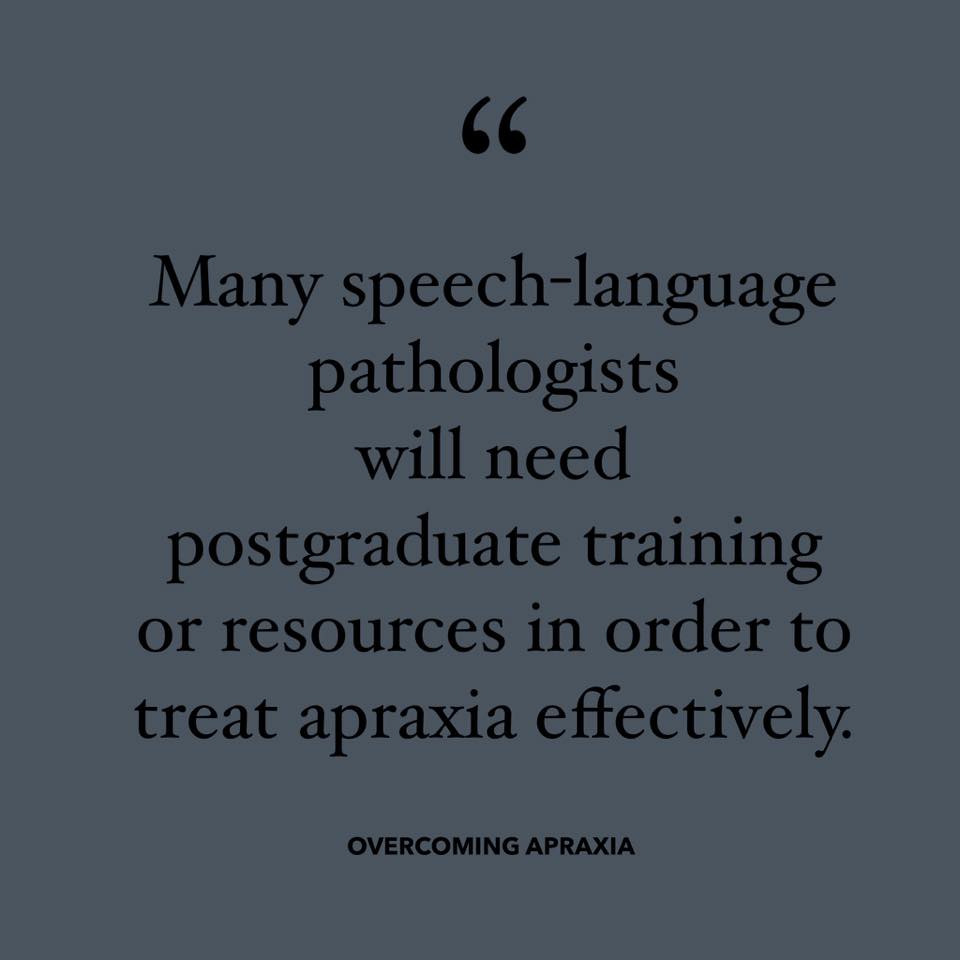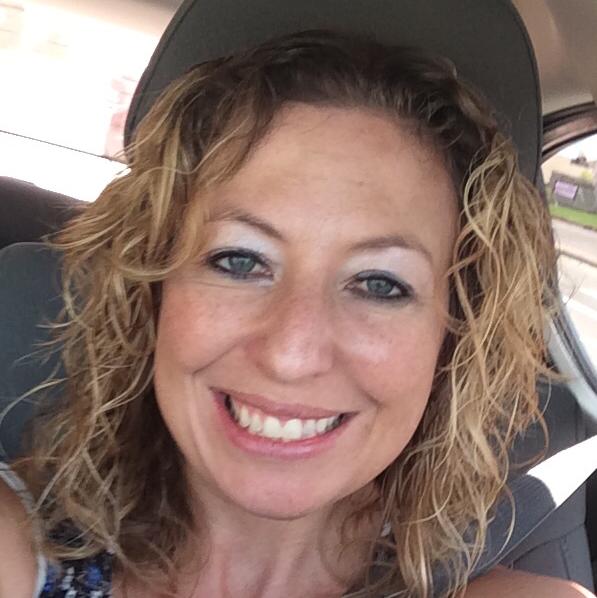Trainings and resources for SLP’s on childhood apraxia of speech (CAS).
I recently posted a quote from my book Overcoming Apraxia on social media that garnered quite a bit of attention. It wasn’t to criticize or disparage SLP’s. It’s just a fact many of us speech-language pathologists, (myself included) didn’t get adequate training in graduate school on how to treat apraxia. I had maybe 15 loose leaf pages on it, and that wasn’t about treatment.

Many SLP’s asked what trainings I would recommend and many parents asked what questions they should ask. I’ve compiled a list of trainings and resources on childhood apraxia of speech for speech-language pathologists.
SLP training and resources
There are numerous online free trainings for apraxia, believe it or not.
- Currently Edythe Strand has a free course on DTTC (dynamic temporal tactile cueing) that gives you CEU’s through the University of Texas at Dallas found at Child Apraxia Treatment.
- Another FREE resource is out of the University of Syndney that has a free online training and AND supplemental materials for ReST (Rapid Syllable Transition Training)
- PROMPT (Restrucuring Oral Muscular Phonetic Targets) is a method of tactile cueing that only offers in person training and is pricey.
- Lynn Carahaly has the Speech EZ Apraxia program with videos for sale and workshop opportunities.
- Nancy Kaufman has a commercially available video detailing her method that I liked when I was first learning about CAS because she gives a lot of video examples.
- Apraxia-Kids.org offers on demand videos that can be accessed through a yearly subscription fee that is relatively cheap (around $90 for the entire year).
- ASHA.org has a recently updated practice portal on CAS.
- A book that is awesome on how to treat apraxia is by Margaret Fish called “Here’s how to treat childhood apraxia of speech.”
- Another book that is fantastic is by Cari Ebert and David Hammer called “The SLP’s Guide to Treating Childhood Apraxia of Speech.”
- A newer and AWESOME book targeted for parents and early intervention professionals is “Let’s Get Talking,” by Mehreen Kakwan. It explains direct therapy tips to use when a child has suspected motor planning difficulties including visual and verbal cueing ideas.
*Both DTTC and ReST have the current highest evidence base in the research on apraxia*
Fellow speechies, here’s the deal. Yes we come out of graduate school with a wealth of knowledge, and yes, the Certificate of Clinical Competence behind our name makes us qualified to treat speech/language disorders; however, the field is VAST. We should not apologize or feel bad about not being an “expert” in every speech and language disorder from birth to geriatrics.
However we DO have a responsiblity to be honest with parents, clients, and families about our level of expertise in a given area, and whenever possible, try to gain additional training and expertise in that area if we are lacking.

Laura Smith, M.A. CCC-SLP is a 2014 graduate of Apraxia Kids Boot Camp, has completed the PROMPT Level 1 training, and the Kaufman Speech to Language Protocol (K-SLP). She is the author of Overcoming Apraxia and has lectured throughout the United States on CAS and related issues. Currently, Laura is a practicing SLP specializing in apraxia at her clinic A Mile High Speech Therapy in Aurora, Colorado.